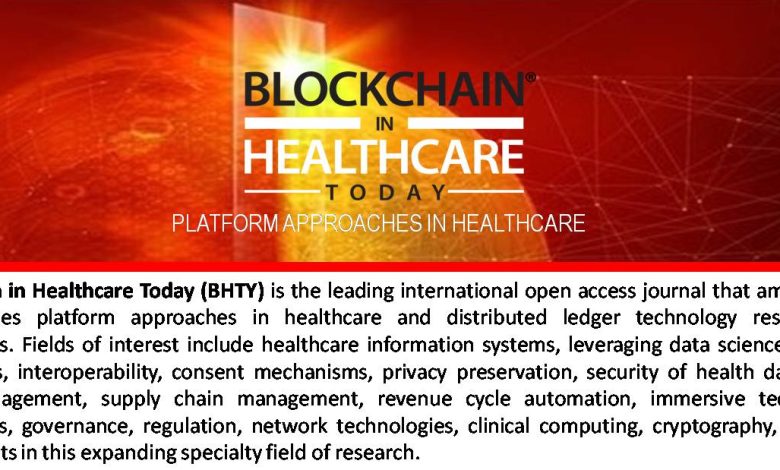Exploring the Potential of Blockchain in Healthcare

- Understanding the basics of blockchain technology
- Benefits of implementing blockchain in healthcare
- Challenges and obstacles in adopting blockchain in the healthcare industry
- Real-world examples of blockchain applications in healthcare
- Regulatory considerations for blockchain implementation in healthcare
- Future trends and possibilities of blockchain technology in healthcare
Understanding the basics of blockchain technology
Blockchain technology is a decentralized, distributed ledger system that securely records transactions across a network of computers. Each transaction is stored in a “block” that is linked to the previous block, forming a chain of blocks – hence the name “blockchain.” This technology ensures transparency, security, and immutability of data, making it an ideal solution for industries like healthcare.
In the context of healthcare, blockchain technology has the potential to revolutionize the way patient data is stored and shared. By using blockchain, healthcare providers can create a secure and tamper-proof system for managing electronic health records (EHRs). Patients can have more control over who accesses their data, ensuring privacy and confidentiality.
One of the key features of blockchain technology is its ability to create smart contracts. These self-executing contracts automatically enforce and facilitate the negotiation or performance of an agreement. In healthcare, smart contracts can streamline processes such as insurance claims processing, medical billing, and supply chain management.
Moreover, blockchain technology can help in the fight against counterfeit drugs by creating a transparent and traceable supply chain. Each step of a drug’s journey from manufacturer to patient can be recorded on the blockchain, ensuring authenticity and preventing the circulation of fake medications.
Overall, understanding the basics of blockchain technology is crucial for unlocking its full potential in healthcare. By leveraging this innovative technology, healthcare organizations can improve data security, streamline operations, and enhance patient care. As the healthcare industry continues to evolve, blockchain technology will play a significant role in shaping its future.
Benefits of implementing blockchain in healthcare
Implementing blockchain technology in healthcare can bring about numerous benefits that can revolutionize the industry. Some of the key advantages include:
- Enhanced security: Blockchain offers a high level of security through its decentralized and encrypted nature, making it difficult for unauthorized parties to access or tamper with sensitive patient data.
- Improved interoperability: By using blockchain, healthcare providers can securely share patient information across different systems and organizations, leading to better coordination of care and more efficient healthcare delivery.
- Streamlined data management: Blockchain technology allows for the creation of a single source of truth for patient data, reducing duplication and errors while ensuring data integrity.
- Increased transparency: The transparent and immutable nature of blockchain enables patients to have more control over their own health data and understand how it is being used.
- Cost savings: By eliminating intermediaries and streamlining processes, blockchain can help reduce administrative costs and improve overall efficiency in healthcare operations.
Overall, the implementation of blockchain in healthcare has the potential to transform the industry by addressing key challenges and improving the quality of care for patients.
Challenges and obstacles in adopting blockchain in the healthcare industry
Implementing blockchain technology in the healthcare industry comes with its fair share of challenges and obstacles that need to be addressed for successful adoption. Some of the key challenges include:
- Lack of standardization: The healthcare sector lacks standardized protocols for data sharing and interoperability, which makes it difficult to implement blockchain solutions seamlessly.
- Regulatory concerns: The stringent regulations surrounding patient data privacy and security pose a significant hurdle for blockchain adoption in healthcare.
- Integration with existing systems: Integrating blockchain technology with legacy systems can be complex and time-consuming, requiring significant resources and expertise.
- Cost implications: Implementing blockchain solutions in healthcare can be costly, especially for smaller organizations with limited budgets.
- Resistance to change: Healthcare professionals may be resistant to adopting new technologies like blockchain due to concerns about workflow disruptions and the learning curve involved.
Real-world examples of blockchain applications in healthcare
Blockchain technology has the potential to revolutionize the healthcare industry by providing secure and transparent solutions for data management. There are several real-world examples of blockchain applications in healthcare that showcase the benefits of this innovative technology.
- One example is the use of blockchain for medical record management. By storing patient data on a decentralized ledger, healthcare providers can ensure the integrity and security of sensitive information. This can help prevent data breaches and unauthorized access to patient records.
- Another example is the implementation of blockchain for drug traceability. Pharmaceutical companies can use blockchain to track the entire supply chain of medications, from production to distribution. This can help reduce the risk of counterfeit drugs entering the market and improve patient safety.
- Blockchain can also be used for clinical trials management. By recording trial data on a blockchain network, researchers can ensure the transparency and accuracy of results. This can help streamline the drug development process and bring new treatments to market faster.
- Additionally, blockchain technology can facilitate secure sharing of medical data between healthcare providers. Patients can have more control over their health information and grant access to specific providers as needed. This can improve care coordination and patient outcomes.
Overall, blockchain has the potential to transform the healthcare industry by enhancing data security, improving transparency, and streamlining processes. As more organizations adopt blockchain solutions, we can expect to see even more innovative applications that benefit both patients and healthcare providers.
Regulatory considerations for blockchain implementation in healthcare
When considering the implementation of blockchain technology in healthcare, it is crucial to take into account the various regulatory considerations that come into play. The healthcare industry is heavily regulated to ensure patient safety and data security, and blockchain technology must comply with these regulations to be successfully integrated into the healthcare system.
One of the main regulatory considerations for blockchain implementation in healthcare is data privacy and security. Healthcare data is highly sensitive and must be protected from unauthorized access or tampering. Blockchain technology offers a secure and transparent way to store and share data, but it must still adhere to regulations such as the Health Insurance Portability and Accountability Act (HIPAA) in the United States.
Another important regulatory consideration is data ownership and consent. Patients have the right to control their own health data and must give consent for it to be shared or accessed. Blockchain technology can provide patients with more control over their data through encrypted keys and smart contracts, but it must still comply with regulations regarding data ownership and consent.
Additionally, regulatory considerations for blockchain implementation in healthcare include interoperability and standardization. Healthcare systems often use different formats and standards for data exchange, which can create challenges when implementing blockchain technology. It is essential to ensure that blockchain solutions are interoperable with existing systems and comply with industry standards to facilitate seamless data exchange.
Future trends and possibilities of blockchain technology in healthcare
Blockchain technology has the potential to revolutionize the healthcare industry in the coming years. By leveraging the decentralized and secure nature of blockchain, healthcare organizations can streamline processes, improve data security, and enhance patient care.
One of the future trends in blockchain technology in healthcare is the use of smart contracts. Smart contracts are self-executing contracts with the terms of the agreement directly written into code. This can automate processes such as insurance claims, medical record sharing, and supply chain management, reducing the need for intermediaries and increasing efficiency.
Another possibility is the use of blockchain for interoperability. Currently, healthcare data is often siloed in different systems, making it difficult to share information between providers. Blockchain can create a secure and transparent way to share data across different platforms, ensuring that patient information is accurate and up-to-date.
Furthermore, blockchain technology can also be used for clinical trials and research. By creating a transparent and immutable record of trial data, researchers can ensure the integrity of their results and prevent data tampering. This can lead to faster and more reliable research outcomes, ultimately benefiting patients and the healthcare industry as a whole.
Overall, the future of blockchain in healthcare looks promising. As the technology continues to evolve and mature, we can expect to see more innovative applications that improve patient outcomes, streamline processes, and enhance data security in the healthcare industry.



